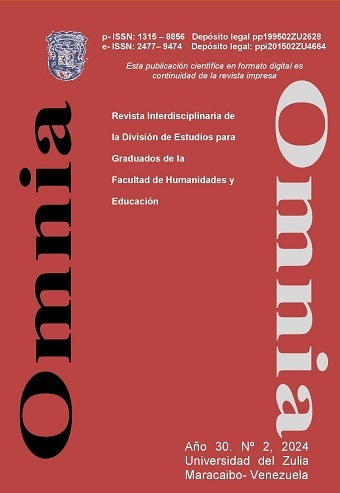Gestión del conocimiento en ciencias humanas: El papel de las cátedras libres como ciencia ciudadana
Resumen
En los nuevos escenarios de transformación del mundo globalizado, se evidencia la aparición de proyectos económicos, políticos sociales, institucionales, organizacionales, emergentes. Acá el conocimiento, las tecnologías y la innovación, tienen un papel vital, alejándose de las formas tradicionales de hacer y generar conocimiento. En este marco contextual, el énfasis hoy, también está puesto en cómo las universidades conciben y promueven la producción de conocimiento y el uso que de él se hace, tanto en el debate político, sobre los grandes problemas del desarrollo, como en el dialogo y la participación social sobre estos asuntos. Una educación con responsabilidad social y política, que genere puentes entre ciencia y ciudadanía, una ciencia ciudadana. Las Categorías de análisis a resaltar son gestión social del conocimiento, ciencia ciudadana y cátedras libres. Es un trabajo sustentado en una variedad bibliográfica, documentos e informes, así como algunas experiencias y saberes compartidos, cuyo aporte principal, es contribuir en el desarrollo de ideas, que sirvan de base para la investigación, discusión y difusión sobre esta temática. Se concluye, en la necesidad de abrir espacios de participación y cooperación integral e interdisciplinaria, donde se pueda analizar, discutir, generar y difundir conocimientos y saberes sobre los problemas de nuestros países y cómo enfrentarlos. Programas académicos como las cátedras libres, espacios extracurriculares, abiertos, de participación, investigación, docencia y extensión, donde se comparten conocimientos científicos y saberes
Descargas
Citas
Castellanos, María Egilda (2007). Educación para la integración. En Cuadernos Latinoamericanos. Editorial CEELA. Universidad del Zulia. Año 18, junio, Nº 31, Maracaibo, Venezuela.
Freire, Pablo (1979). Educación como práctica libertaria. Editorial Si-glo XXI, Edición 25, México.
__________ (1980). Pedagogía del Oprimido. Editorial Siglo XXI, Edi-ción 26. España.
Golombek, Diego (2017) ¿Qué es la ciencia ciudadana y cómo pro-mueve el conocimiento abierto? En conocimiento abierto, february 9, by 6 En https://blogs.iadb.org/conocimiento-abierto/es/la-ciencia-ciudadana-promueve-conocimiento-abierto.
Martin, Víctor (2022). Conocimientos y saberes en perspectiva ética educativa. Retos y soluciones. Conferencia En 2da Jornada ibe-roamericana de Cátedras Libres “Nebis Acosta Kanquis, 13 de Octubre. Maracaibo, Venezuela.
Mazza, Carolina (2018). Ciencia abierta y ciudadana, una forma de hacer ciencia cada vez más argentina. Argentina, 05 de sep-tiembre. En http://accesoabierto.fahce.unlp.edu.ar/entradas/ciencia-abierta-y-ciudadana.
Mesia Montenegro, Christian (2021). Innovación social y ciencia ciu-dadana en la gestión del patrimonio en un escenario post COVID-19. Revista de Ciencias Sociales (Ve), XXVII (2), 13-17, Vol. XXVII, No. 2, 2021, pp. 13-17 Abril-Junio.
Perelló, Josep (2022). New knowledge environments. On the possibility of a citizen social science. Mètode Science Studies Journal, 12.https://doi.org/10.7203/ metode.12.18136
PNUD (2022). Informe. Programa de las Naciones Unidas para el Desa-rrollo, 2022. Esmeralda 130, 13 piso (C1035ABD) Buenos Aires, Argentina www.ar.undp.org.
Rincón, Imelda, Aular, Judith, y Ortega, Sheila (2012). Pertinencia So-cial de las Cátedras Libres en la Universidad del Zulia. Revista Multiciencias, Vol 12, enero diciembre, pp. 191 196. Universi-dad del Zulia. Maracaibo, Venezuela.
Sebastian, Jesús (2000). La cultura de la cooperación en la Investigación, Desarrollo e Innovación. Revista Espacios. Volumen 21, Nº2, PP. 165 180.
Trujillo Mascia, Naudy (2013). Las Cátedras Libres de la UCLA. Compendium Sistema de Información Científica Redalcy UAE mEX.
Unesco (2020). La Ciencia al servicio de la sociedad. En https://es.unesco.org/ themes/ciencia-al-servicio.





